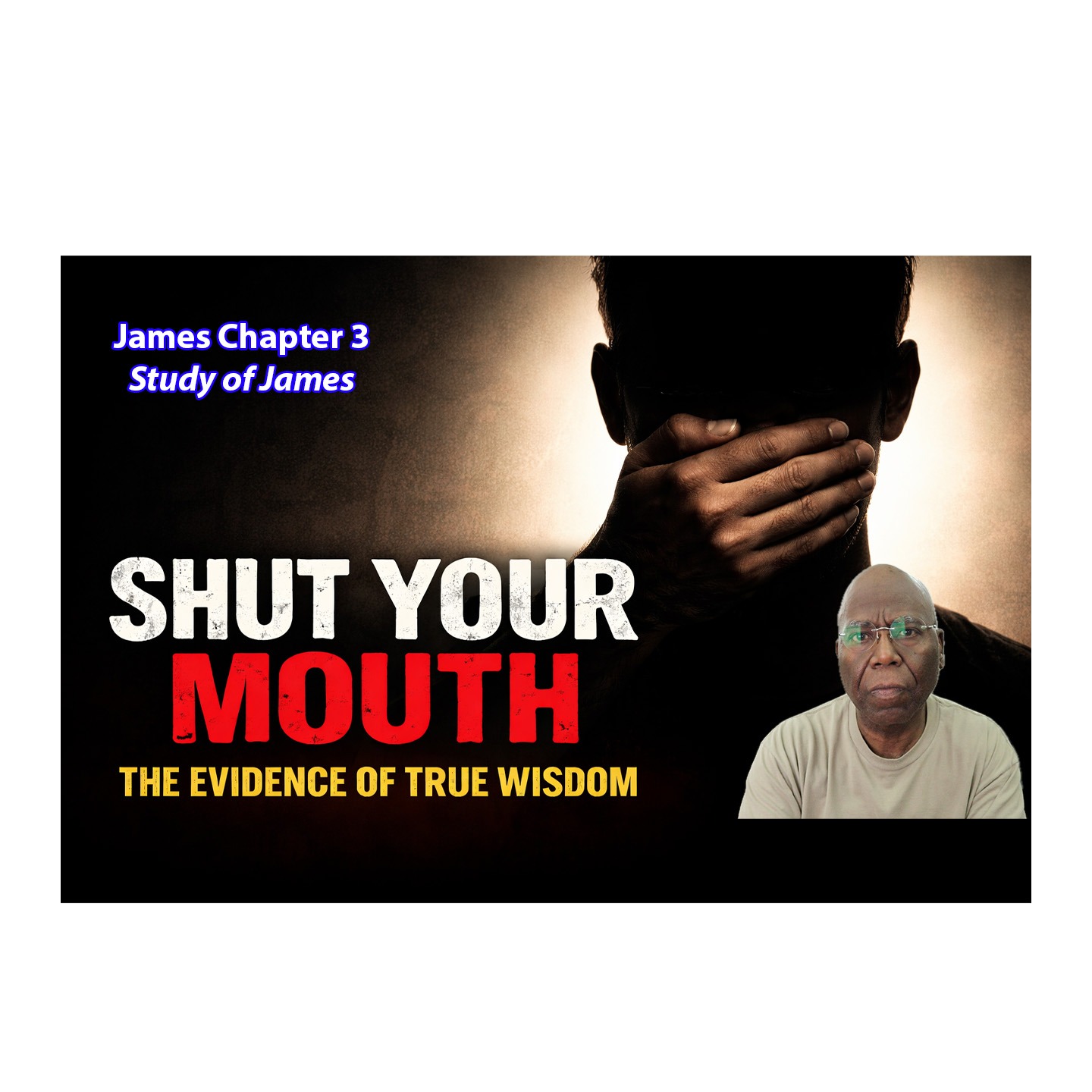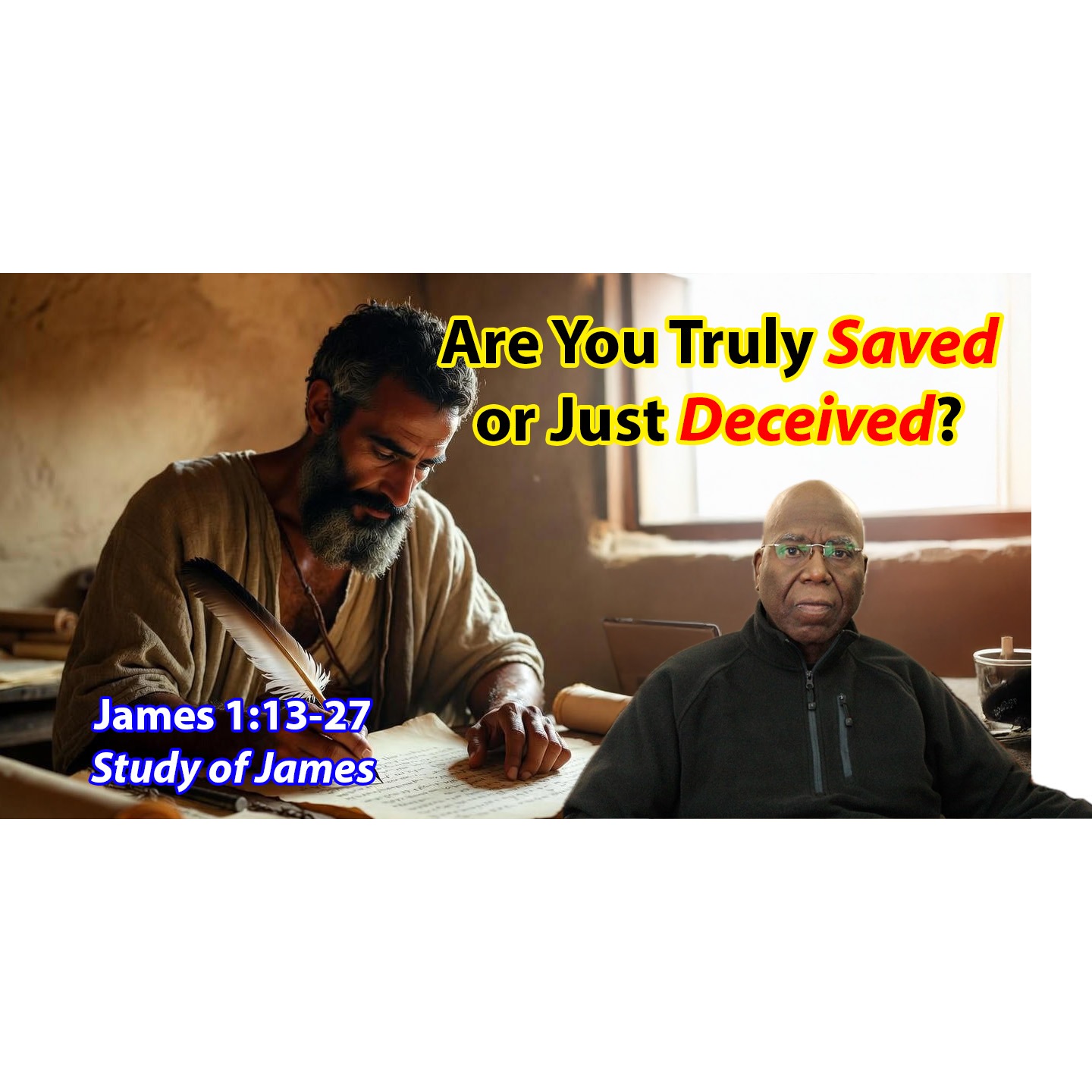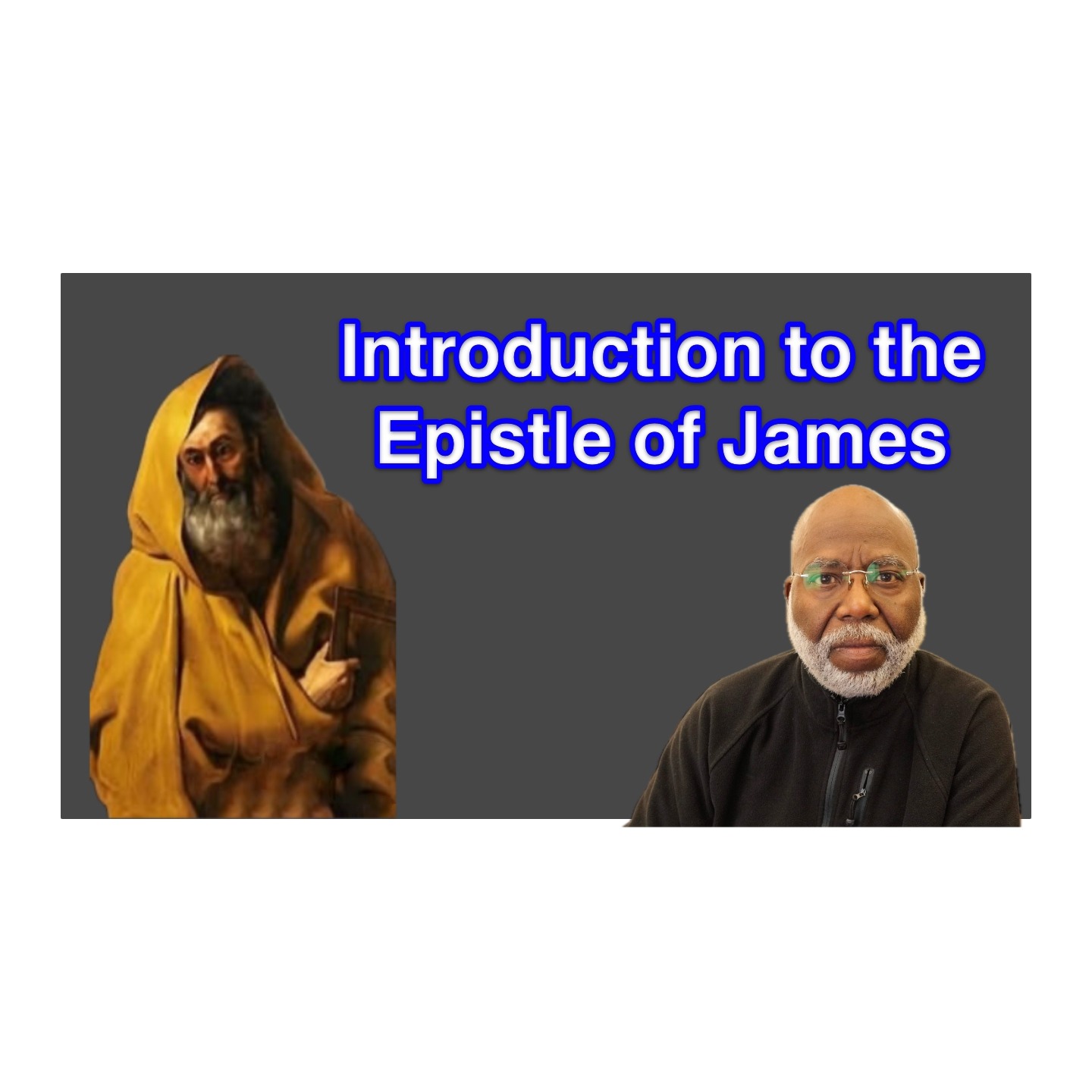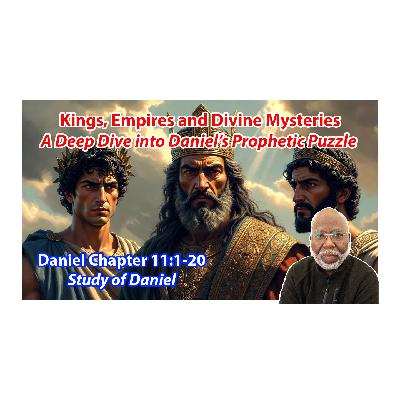Discover Let's Talk Scripture
Let's Talk Scripture

Let's Talk Scripture
Author: Eric Lee
Subscribed: 9Played: 380Subscribe
Share
© Let's Talk Scripture (2020). All rights reserved.
Description
Verse by verse Bible study and commentary with Pastor Eric Lee. Deep and instructive teaching for critical students as well as beginners.
Visit us at: https://letstalkscripture.org
515 Episodes
Reverse
Get your notes for this teaching!
What happens when the gospel itself is put on trial?
In Galatians 2:1–10, Paul faces pressure to compromise grace and return to the law — and he refuses.
False brothers attempt to force circumcision, re-impose the Mosaic Law, and drag Gentile believers back into spiritual bondage. Paul stands firm so that the truth of the gospel would remain.
This teaching reveals the real conflict in the early church: freedom in Christ versus religious legalism. You will see why Titus became the test case, how Paul defended the gospel, and why apostolic authority is rooted in divine calling, not human reputation. James, Peter, and John ultimately affirm Paul’s mission — proving that salvation is by grace alone, through faith alone, in Christ alone.
If you’ve ever wondered how law and grace fit together, why Paul resisted the Judaizers, or what it truly means to live free in Christ, this study will bring clarity and conviction.
Topics in this teaching:
Paul vs false teachers, law vs grace, Galatians 2 explained, Christian freedom, justification by faith, apostolic authority, early church controversy, sound doctrine, verse-by-verse Bible study
Support this podcast at — https://redcircle.com/lets-talk-scripture/donations
Get your notes for this teaching:
https://letstalkscripture.org/product/the-untold-story-of-pauls-apostleship-no-council-needed-galatians-111-24/
If you’ve ever wondered where Paul’s gospel really came from, why Acts 15 matters, and how grace stands apart from religious tradition, this study will change how you read the New Testament.
Paul did not receive his gospel from men — and he did not need Jerusalem’s approval. In Galatians 1:11–24, the apostle defends the divine origin of his message and reveals the hidden years that shaped his calling. From Arabia to Damascus, from persecution to proclamation, this passage exposes the truth about Paul’s independent apostleship and the source of his authority.
Support this podcast at — https://redcircle.com/lets-talk-scripture/donations
What happens when the gospel is distorted?
In Galatians chapter 1, verses 1 through 10, the apostle Paul delivers one of the strongest warnings in all of Scripture: “Let him be accursed.” This is not mild correction — this is divine seriousness.
In this teaching, we examine why Paul places such weight on the purity of the gospel, what he means by “another gospel,” and why altering the message of grace is not a small matter but a spiritual catastrophe. You’ll see how Paul’s words confront false teaching, defend apostolic authority, and remind the church that the gospel is not ours to modify.
If you care about sound doctrine, biblical truth, and understanding the real stakes of preaching Christ rightly, this study of Galatians 1:1–10 is essential.
Support this podcast at — https://redcircle.com/lets-talk-scripture/donations
The Epistle to the Galatians is Paul’s strong defense of the gospel of grace. He confronts believers who were being pressured to add Jewish law—especially circumcision—to faith in Christ, and he insists that justification comes by faith alone, not by works of the Law. The letter emphasizes Christian freedom, life in the Spirit, and the danger of returning to legalism after having begun by grace.
Support this podcast at — https://redcircle.com/lets-talk-scripture/donations
What did Jesus mean when he said said, “He who has ears to hear; let him hear!”?
Support this podcast at — https://redcircle.com/lets-talk-scripture/donations
A sober call to accountability: the rich are warned of coming judgment, believers are urged to endure suffering with patience until the Lord’s return, integrity in speech is demanded, and the church is reminded of the power of prayer, confession, and restoring those who stray.
Support this podcast at — https://redcircle.com/lets-talk-scripture/donations
James 4 confronts believers over pride, worldliness, and self-rule, calling them to repentance, humility, and submission to God. It exposes the danger of judging others and planning life apart from God’s will, insisting that true faith is demonstrated by humble dependence and obedient action rather than arrogant presumption.
Support this podcast at — https://redcircle.com/lets-talk-scripture/donations
James Chapter 3 teaches that the tongue reveals true spiritual maturity: uncontrolled speech exposes false wisdom, while wisdom from above produces humility, peace, and righteous conduct within the community.
Support this podcast at — https://redcircle.com/lets-talk-scripture/donations
James teaches that genuine faith is never merely claimed but is demonstrated through obedient action. Faith that remains only intellectual or verbal is lifeless, while true faith is proven, completed, and made visible by works that flow from it.
Support this podcast at — https://redcircle.com/lets-talk-scripture/donations
James warns that favoritism in the church contradicts genuine faith and violates God’s law of love. Showing partiality makes one guilty before God, and those who live under the law of liberty must act with mercy, not selective obedience.
Support this podcast at — https://redcircle.com/lets-talk-scripture/donations
James 1:13–27 teaches that God is never the source of temptation; temptation arises from human desire and leads to sin and death. God, by contrast, is the unchanging giver of every good gift and brings new life through the word of truth. Believers are called to receive this implanted word with humility, responding not as mere hearers but as doers. True faith is demonstrated through obedient action, self-control, compassion toward the vulnerable, and moral purity from worldly corruption—this is what constitutes genuine religion before God.
Support this podcast at — https://redcircle.com/lets-talk-scripture/donations
James 1:1-12 addresses Jewish believers scattered abroad, calling them to regard trials as occasions for joy because testing produces endurance that leads to spiritual maturity. He urges believers to seek wisdom from God with unwavering faith, warns against double-minded instability, and assures that perseverance under trial results in God’s approval and the promised crown of life for those who love Him.
Support this podcast at — https://redcircle.com/lets-talk-scripture/donations
Introduction to the Epistle of James
Support this podcast at — https://redcircle.com/lets-talk-scripture/donations
Daniel 12 presents the final climax of Daniel’s visions: a time of unprecedented distress in which Michael arises to protect God’s people, followed by the resurrection of both the righteous and the wicked for judgment. The prophecy is sealed until the end, when many will diligently search it and understanding will grow. The chapter emphasizes purification through tribulation, God’s sovereignty over appointed times, the ultimate vindication of the faithful, and the certainty of final judgment and resurrection.
Support this podcast at — https://redcircle.com/lets-talk-scripture/donations
Daniel 11:21–45 traces the rise of a ruthless ruler—first fulfilled historically in Antiochus IV—whose actions foreshadow a later, greater tyrant: the Antichrist. The passage describes deceit, political manipulation, military campaigns, persecution of God’s people, and a climactic final conflict. It shows how history previews future prophecy and affirms God’s sovereignty over both past and future rulers.
Support this podcast at — https://redcircle.com/lets-talk-scripture/donations
Daniel 11:1–20 traces the shift from Persia to Greece, the breakup of Alexander’s empire, and the ongoing conflict between the Seleucid “North” and Ptolemaic “South,” highlighting shifting alliances, betrayals, and precise prophetic fulfillment.
Support this podcast at — https://redcircle.com/lets-talk-scripture/donations
Daniel 10 records Daniel mourning and fasting for three weeks when a radiant heavenly figure appears by the Tigris River. Daniel collapses at the sight, and an angel strengthens him, explaining that his arrival was delayed by the “prince of Persia” until Michael came to help. The messenger tells Daniel he has come to reveal future conflicts involving Persia and Greece. The chapter exposes the unseen spiritual warfare behind earthly kingdoms and prepares Daniel for the vision that follows in chapters 11–12.
Support this podcast at — https://redcircle.com/lets-talk-scripture/donations
Daniel 9 presents Daniel’s prayer of confession for Israel’s sins and his plea for restoration. In response, Gabriel reveals the prophecy of the “seventy weeks,” outlining God’s timetable for Israel’s future: the coming of the Messiah, the rebuilding of Jerusalem, the Messiah being “cut off,” the destruction of the city, and events leading to the final culmination of God’s plan.
Support this podcast at — https://redcircle.com/lets-talk-scripture/donations
Daniel 8 records Daniel’s vision of a ram with two horns (symbolizing the Medo-Persian Empire) and a goat with a prominent horn (representing Greece and its first king, Alexander the Great). The goat’s great horn is broken, and four arise in its place—referring to the division of Alexander’s empire. From one of these comes a “little horn”—a fierce, blasphemous ruler (fulfilled in Antiochus Epiphanes and foreshadowing the Antichrist)—who desecrates the sanctuary and persecutes God’s people until divine judgment brings his downfall and the sanctuary is restored.
Support this podcast at — https://redcircle.com/lets-talk-scripture/donations
In Daniel chapter 7, Daniel sees four beasts rise from the sea: lion with eagle wings, bear with three ribs, four-headed leopard, and a terrifying ten-horned beast with iron teeth. A little horn uproots three, speaks boastfully. The Ancient of Days judges on a fiery throne; books open, beast slain. The Son of Man receives everlasting dominion; saints inherit the kingdom. The vision foretells empires and end-time victory for God’s people.
Support this podcast at — https://redcircle.com/lets-talk-scripture/donations
























